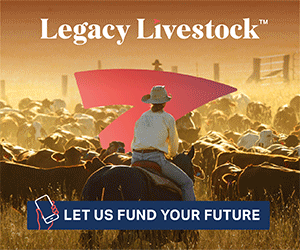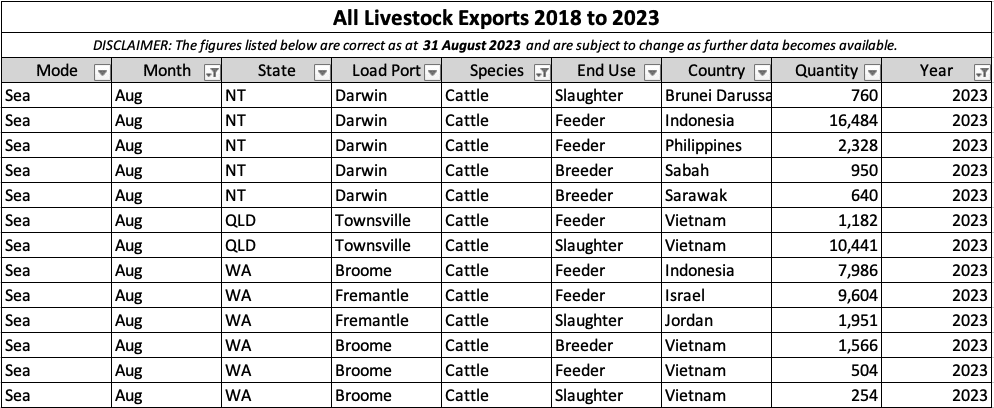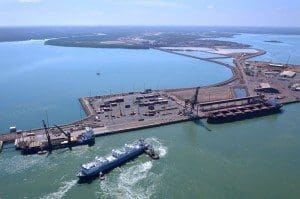AUSTRALIAN cattle exports dropped 20 percent in August following Indonesia’s ban on several key export yards in northern Australia.
The ban was imposed in late July after Indonesian authorities said Australian cattle had tested positive to lumpy skin disease after their arrival in Indonesia, where the highly infectious disease is widespread.
The suspensions were eventually lifted on September 8, after ongoing testing of cattle in northern Australia showed no trace of the disease.
Australian exporters shipped 54,650 cattle in August, of which 24,470 head went to Indonesia, 25 percent below the five-year average for the month.
Small cattle shipments were able to continue between Australia and Indonesia from non-affected yards while the suspensions were in place as Indonesia awaited further proof of Australia’s clean lumpy skin disease status.
But the large yards taken out of play by the ban represented a significant percentage of logistical capacity relied upon by exporters to supply normal volumes of cattle to Indonesia.
The lack of access to important cattle handling infrastructure had a stifling affect on trade during the month, along with the uncertainty and reduced market confidence caused by the ban.
A large number of cattle were already ‘in the system’ when the ban was imposed, and were consequently still delivered to Indonesia during August, but much of the trade had ground to a standstill by the time the month ended, suggesting a bigger impact will show up when export figures for the current month are released in mid-October.
At the same time, exporter feedback is that trade to Indonesia is still being effected by weak demand and competing supplies of low priced meat, particularly frozen Indian buffalo.
 The price of Australian cattle has fallen from over $5/kg liveweight ex-Darwin at the start of the year to around $3.20/kg now, but the lower prices are still meeting market resistance in Indonesia.
The price of Australian cattle has fallen from over $5/kg liveweight ex-Darwin at the start of the year to around $3.20/kg now, but the lower prices are still meeting market resistance in Indonesia.
One exporter explained that it is still difficult in negotiations to settle on a price, with Indonesian importers wanting to pull prices back further, saying it is necessary to compete against Indian buffalo meat for the crucial bakso ball market, while many producers remain reluctant sellers at current prices.
Another prevalent dynamic is that each ship to Indonesia is typically carrying carrying multiple consignments for multiple customers, instead of one shipment for one customer as was often the case in the past, as importers choose to operate in small volumes for cash flow purposes and to avoid being caught out holding too many expensive cattle.
Exports to Vietnam were also lower than the previous month but maintained the generally stronger trend to the market this year, with 13,947 shipped in August, only 8pc below the five-year August average.
August exports also saw the biggest monthly volume of 2023 to Israel at 9604 head, 2328 cattle to the Philippines and 760 head to Brunei.
Export activity to China has been lower this year, with 45,219 head exported from January to August – including no cattle during August at all.
That compares to 91,622 head exported from January to August 2022.
Darwin shipped 21,162 cattle during August, of which 16,484 went to Indonesia, with the balance going to the Philippines, (2328), Sabah (950), Brunei (760) and Sarawak (640).
Townsville shipped 11,623 cattle, which all went to Vietnam; Broome exported 10,310 head (77pc to Indonesia, 23pc to Vietnam) and Fremantle shipped 11,555 (9604 to Israel and 1951 to Jordan).


